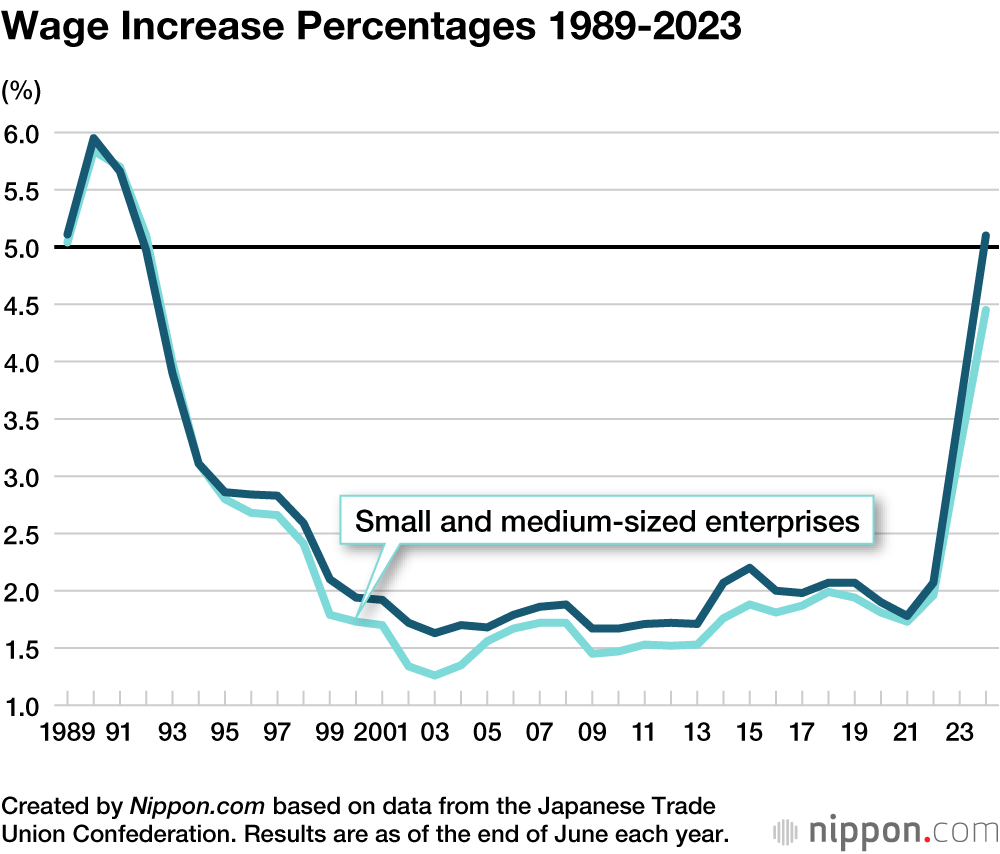
Average Japanese Wage Hikes Reach 33-Year High of 5.1% in 2024
Economy Work- English
- 日本語
- 简体字
- 繁體字
- Français
- Español
- العربية
- Русский
According to the final results of the spring wage offensive, compiled by the Japanese Trade Union Confederation (Rengō), the weighted average of wage increases, a combination of base pay components (base-ups) that raise the basic wage and regular wage increases due to age or seniority, was 5.10% (¥15,281 per month), 1.52 percentage points higher than the previous year. This met the 5% wage increase rate called for by Rengō. The last time that rate was exceeded was 33 years ago in 1991. The results are based on responses received from 5,284 unions as of 10 in the morning on July 1.
Demands came from 5,459 unions for wage increases. A series of major companies in the steel, automobile, electronics, and other industries offered the full amount of the union demands or sometimes even higher. The average wage rate increases at small and medium companies, with fewer than 300 labor union members (3,816 unions), was 4.45% (¥11,358 per month). It fell short of the 5% goal and the gap with large companies was greater than for the previous year.
By industry, wage increases were 5.58% (¥16,952 a month) in manufacturing, 5.20% (¥10,492 a month) in information and publishing, and 5.15% (¥15,036 a month) in commercial distribution. On the other hand, the increase in the transportation industry was only 3.31% (¥9,227).
(Translated from Japanese. Banner photo © Pixta.)

